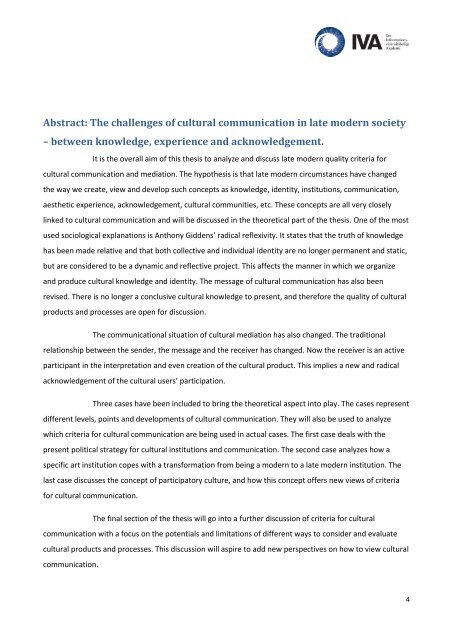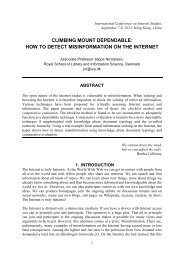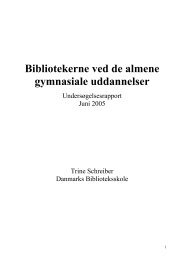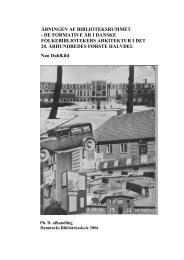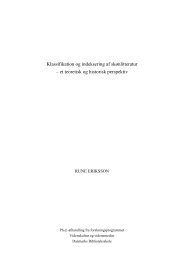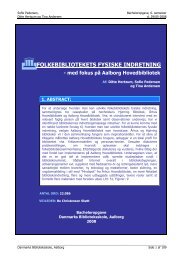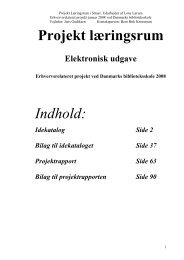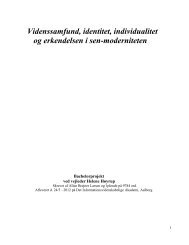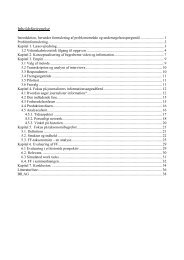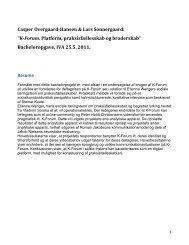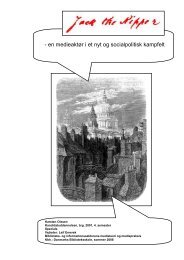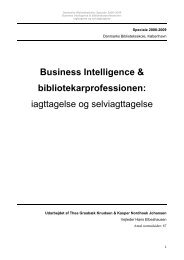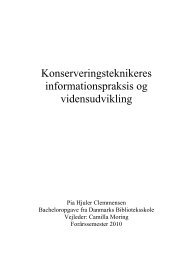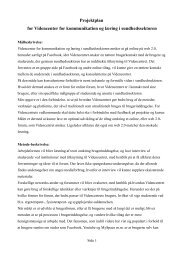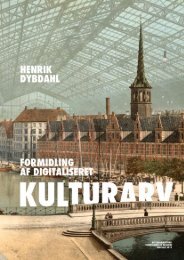Kulturformidlingens udfordringer i det senmoderne ... - Forskning
Kulturformidlingens udfordringer i det senmoderne ... - Forskning
Kulturformidlingens udfordringer i det senmoderne ... - Forskning
You also want an ePaper? Increase the reach of your titles
YUMPU automatically turns print PDFs into web optimized ePapers that Google loves.
Abstract: The challenges of cultural communication in late modern society<br />
– between knowledge, experience and acknowledgement.<br />
It is the overall aim of this thesis to analyze and discuss late modern quality criteria for<br />
cultural communication and mediation. The hypothesis is that late modern circumstances have changed<br />
the way we create, view and develop such concepts as knowledge, identity, institutions, communication,<br />
aesthetic experience, acknowledgement, cultural communities, etc. These concepts are all very closely<br />
linked to cultural communication and will be discussed in the theoretical part of the thesis. One of the most<br />
used sociological explanations is Anthony Giddens’ radical reflexivity. It states that the truth of knowledge<br />
has been made relative and that both collective and individual identity are no longer permanent and static,<br />
but are considered to be a dynamic and reflective project. This affects the manner in which we organize<br />
and produce cultural knowledge and identity. The message of cultural communication has also been<br />
revised. There is no longer a conclusive cultural knowledge to present, and therefore the quality of cultural<br />
products and processes are open for discussion.<br />
The communicational situation of cultural mediation has also changed. The traditional<br />
relationship between the sender, the message and the receiver has changed. Now the receiver is an active<br />
participant in the interpretation and even creation of the cultural product. This implies a new and radical<br />
acknowledgement of the cultural users’ participation.<br />
Three cases have been included to bring the theoretical aspect into play. The cases represent<br />
different levels, points and developments of cultural communication. They will also be used to analyze<br />
which criteria for cultural communication are being used in actual cases. The first case deals with the<br />
present political strategy for cultural institutions and communication. The second case analyzes how a<br />
specific art institution copes with a transformation from being a modern to a late modern institution. The<br />
last case discusses the concept of participatory culture, and how this concept offers new views of criteria<br />
for cultural communication.<br />
The final section of the thesis will go into a further discussion of criteria for cultural<br />
communication with a focus on the potentials and limitations of different ways to consider and evaluate<br />
cultural products and processes. This discussion will aspire to add new perspectives on how to view cultural<br />
communication.<br />
4


